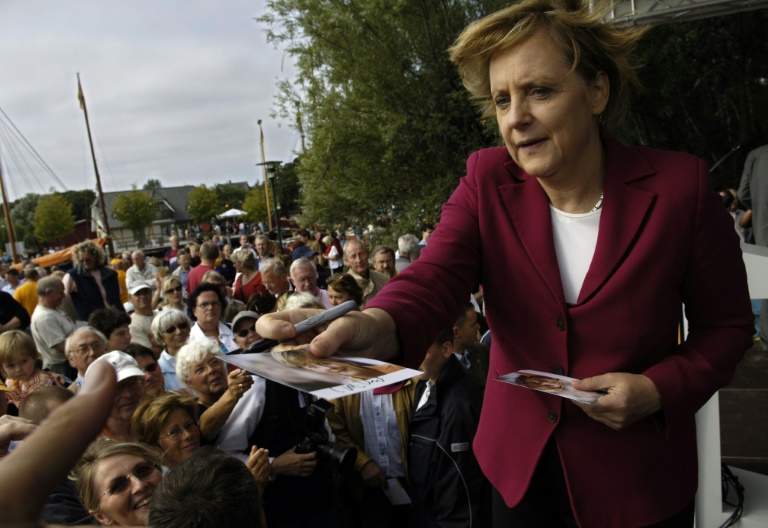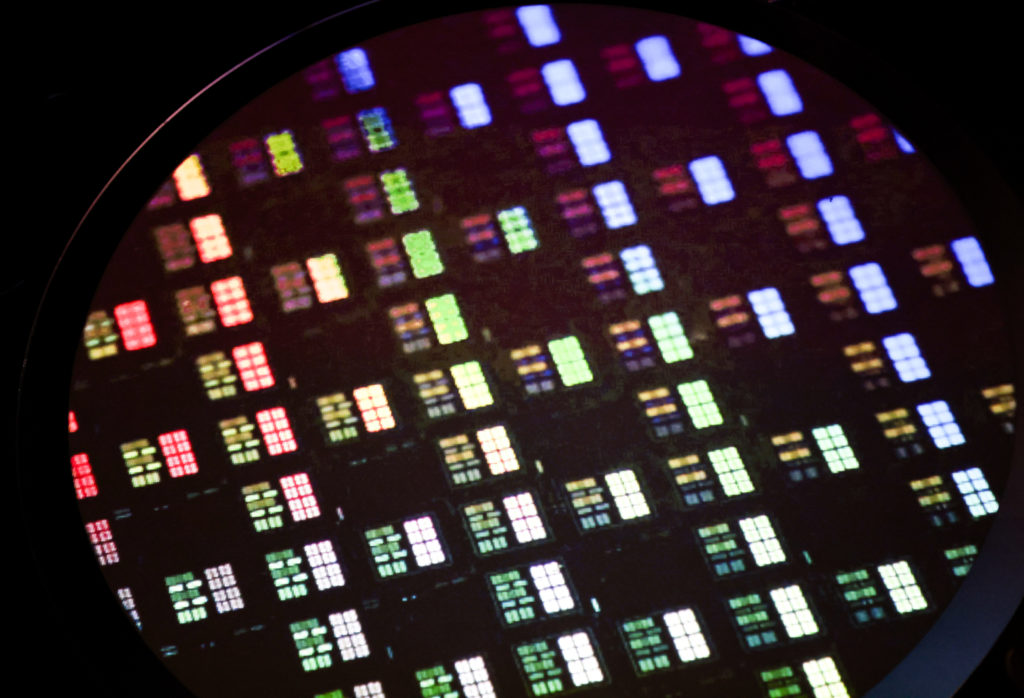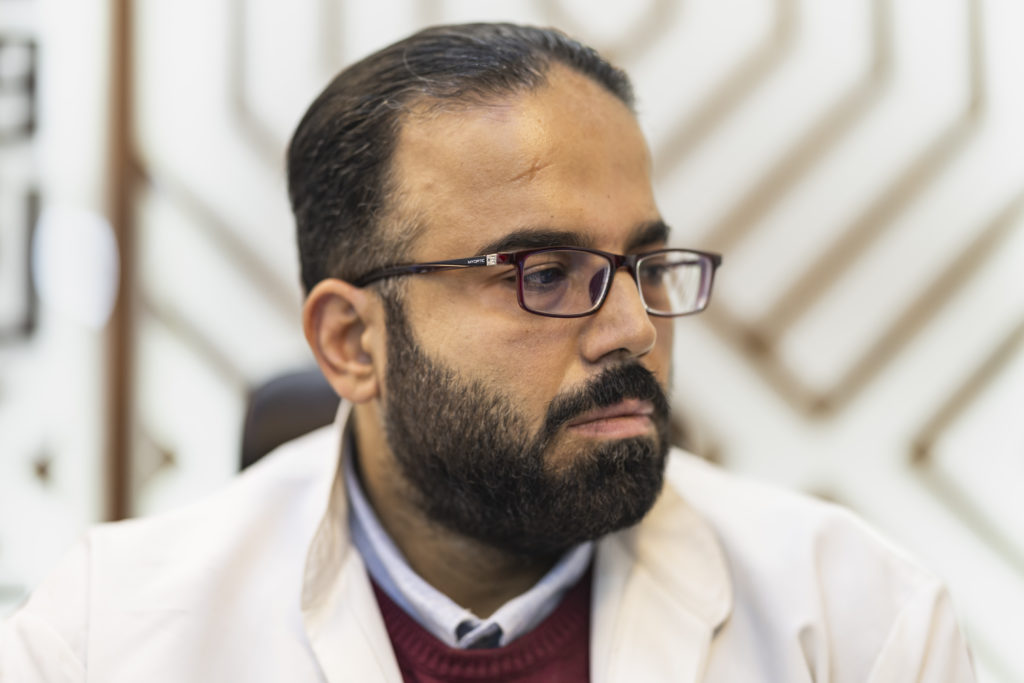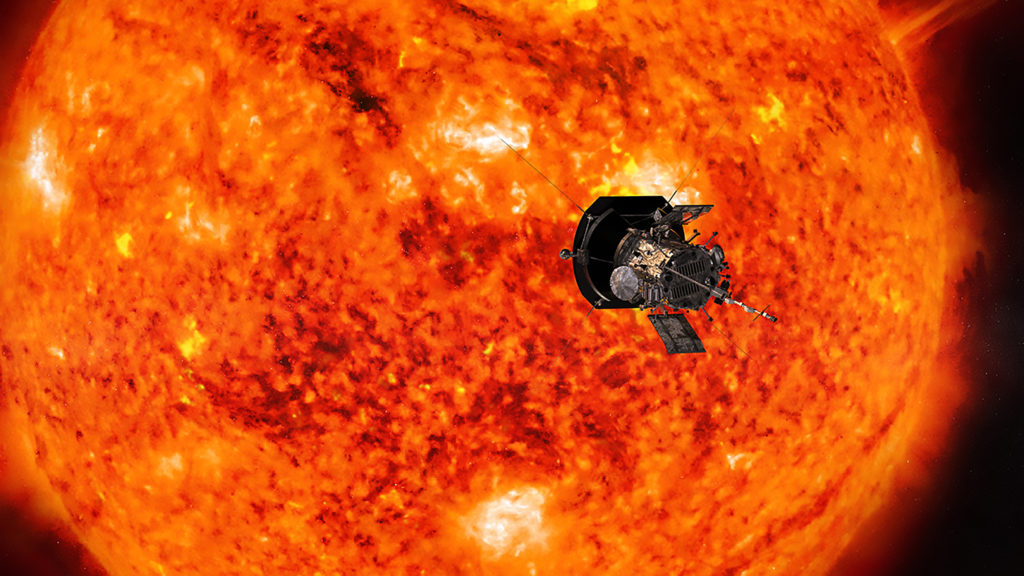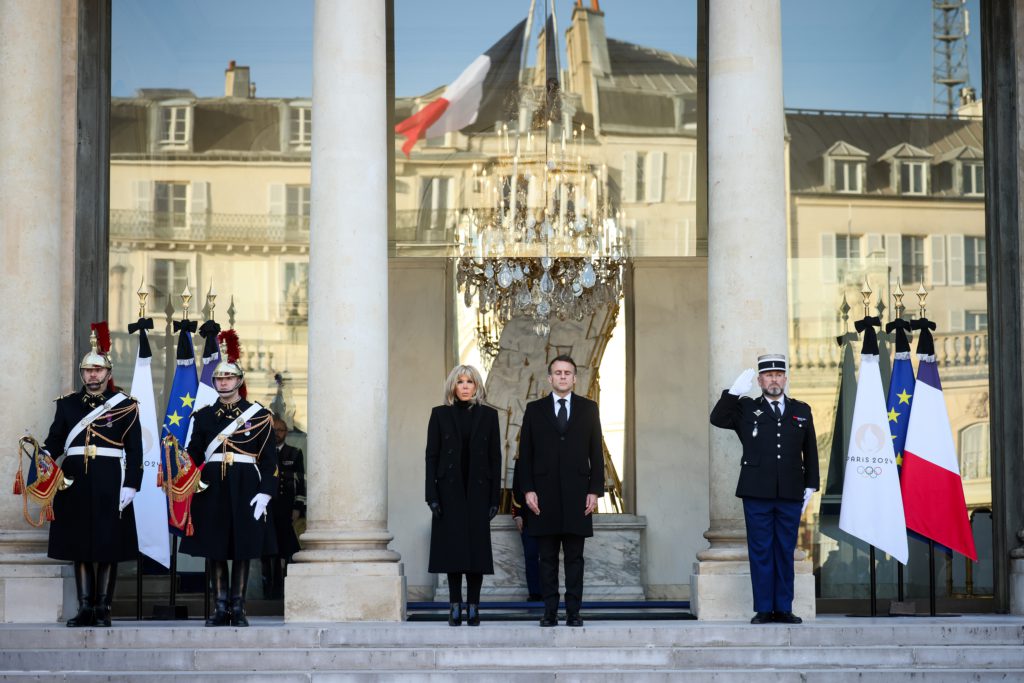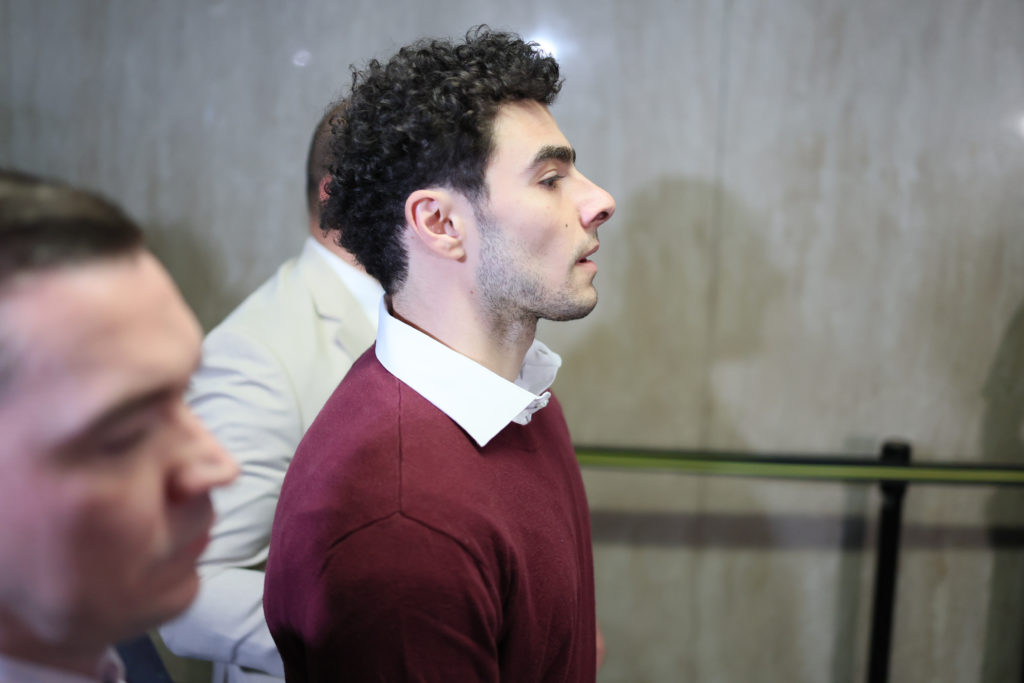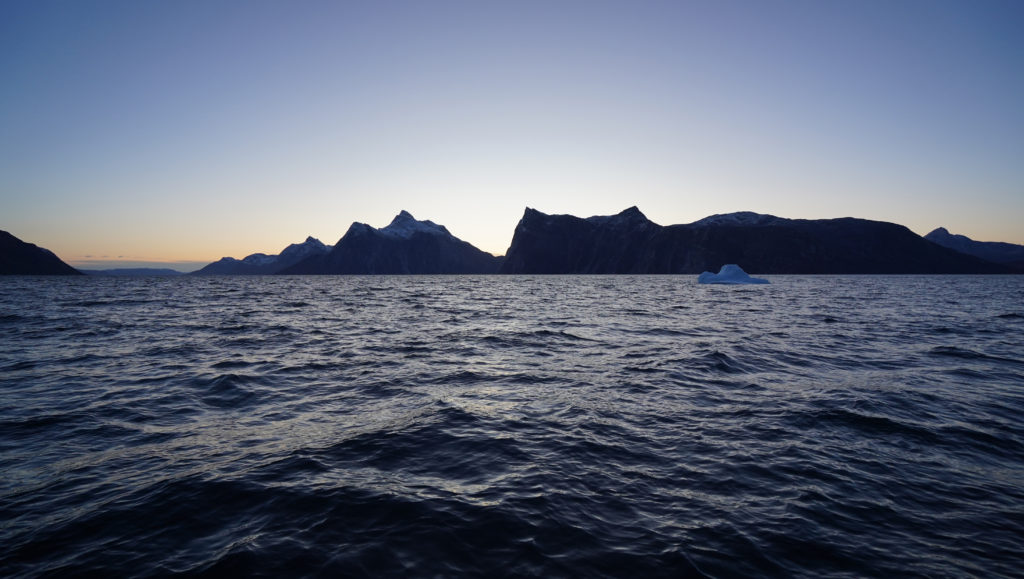In power for so long that a whole generation of Germans grew up knowing only her as chancellor, Angela Merkel is due to bow out of politics following September 26 elections.
AFP takes a look back at images of the East German quantum chemist who leapt into politics, becoming the world’s most powerful woman.
– Fisher of men –
Around a year after the fall of the Berlin Wall, Merkel, then 36, stepped into a fishermen’s hut on the northern German island of Ruegen.
Dressed in a maroon cardigan, white T-shirt and long denim skirt, she began chatting with five fishermen wearing blue workers’ overalls.
“She gave the impression that she understood us,” one would later say. He would go on to vote for the candidate standing for the constituency of Stralsund-Ruegen-Grimmen.
So began Merkel’s first election campaign and her road to the chancellery.
In 2005, her conservative CDU-CSU alliance narrowly won the election and Merkel was sworn in as Germany’s first female chancellor in November.
– Germany’s 12th player –
Barely a year in office, Germany’s new chancellor would play host to the world’s most watched game — the 2006 football World Cup.
The home team finished third that year, but after a successful campaign with Germans daring to wave their flags joyously again, Time magazine branded Merkel “the woman who cheered up Germany”.
Football was not just a fad for Merkel, who over the years nurtured strong links with the Die Mannschaft.
Images of her leaping up in the stands in unbridled joy when Germany score a goal have led German media to comment that “the 12th man in the squad is called Angela”.
Die Zeit weekly even ran a series of spoof love letters between Merkel and midfielder Bastian Schweinsteiger, opening with “Dear Basti” and closing with “Yours, Angie”.
Striker Lukas Podolski in 2014 tweeted that Merkel’s World Cup attendance at Germany’s opening campaign in Brazil provided “Muttivation” — a word play on her nickname Mutti, which means mummy.
And pictures of her with the team in the changing room have become a mainstay at major tournaments.
She was missing from the stands due to the coronavirus pandemic at this year’s European Championships in which Germany crashed out of the last 16.
– Euro crisis –
If the football world saw the feel-good side of Merkel, the Greeks bore the brunt of a harder line.
Unmoved by the pleas of Greece during the eurozone debt crisis, Merkel stuck to Germany’s mantra demanding Athens carry out austerity reforms in exchange for bailout loans.
As Greece stood at the brink of an economic collapse that threatened to force it out of the eurozone in 2015, Greeks went on the march, with some bearing posters portraying Merkel with a Hitler moustache.
However, the dogma was smashed by the coronavirus pandemic, which saw Merkel making an extraordinary U-turn to incur huge debts to fund Germany’s exit from the crisis.
More remarkably, she and France’s Emmanuel Macron spearheaded the 750-billion-euro ($910bn) EU recovery fund, which sees the European Commission raising money by issuing bonds on behalf of the entire 27-member bloc.
– ‘We can do it’ –
The chancellor’s momentous decision on September 4, 2015 to keep Germany’s borders open to people fleeing wars in Iraq and Syria left a mark not only on European migration policies, but also arguably sparked a resurgence of the far-right in Germany.
When tens of thousands of migrants streamed into Germany, putting the country’s emergency response authorities under intense pressure, Merkel declared: “We can do it.”
But it has also left scars in Germany, where the far-right capitalised on popular anger against the new arrivals, becoming the biggest opposition force in parliament in the 2017 elections.
The large influx also deeply divided the European Union, with mostly former Eastern bloc nations firmly opposed to taking in refugees.
– Leader of the free world? –
With her extraordinary congratulatory message to Donald Trump on his election as US president in November 2016, Merkel appeared to take the mantle of leader of the free world.
Merkel offered Trump her cooperation but only on the basis of democratic values — an unheard of shot across the bow to Washington.
That would start four years of fractious ties, and fans leapt on an image of Merkel and Trump at a deeply divisive G7 summit in Canada as an illustration of how she was trying to keep the US leader on the straight and narrow.
Speaking about the photo herself, Merkel said she has had to work very closely with Trump to resolve problems.
“This picture also shows that we’re indeed grappling with issues,” she told broadcaster CNN in an interview.
“The president has his opinions, I have mine, and very often we also found common ground. And if not, we have to keep on talking and negotiating.”

